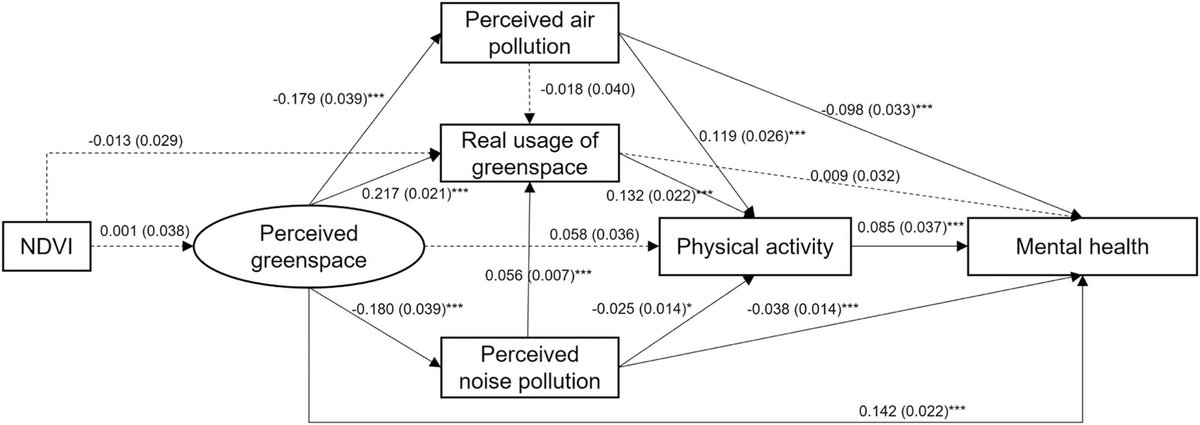
Mei-Po Kwan
@meipokwan
Followers
3K
Following
9K
Statuses
5K
Professor of Geography @CUHKofficial; interested in environmental health, human mobility, healthy cities, social justice, and GIScience.
Hong Kong
Joined February 2016
The neighborhood effect averaging problem (NEAP) means that ignoring people's daily mobility may lead to erroneous results in the study of mobility-dependent exposures (e.g., air pollution) and their health impacts. See the NEAP webpage at
New open access paper identifies an elusive confounder of the neighborhood effect due to human mobility: The Neighborhood Effect Averaging Problem (NEAP).
0
21
84
RT @JianweiHuang12: We are excited to share our new study @meipokwan, which revealed that dietary changes are associated with increased air…
0
1
0
RT @ThomDavies: JOB🚨: Assistant Professor in Human Geography at @UoNGeography: 💰£41,421 to £56,921 per annum Any of these research areas…
0
28
0
Using GPS-enabled mobile sensing and survey data, our new open-access paper found that increased greenspace exposure is associated with a higher likelihood of better mental health outcomes during the COVID-19 pandemic. @theAAG @AmericanGeo
Our latest @meipokwan @Kanzihannn Health&Place study assesses the impact of socioeconomic and environmental factors on mental health during COVID-19 using GPS-enabled mobile sensing&survey data. Free access to this paper via
0
8
16
RT @theAAG: New Editor Sought: AAG seeks applications for a Geographic Methods editor for the Annals of the AAG, appointed to a four-year t…
0
9
0
Using structural equation modeling and mediation analyses, our new open-access paper found that greenspace has the most substantial total effect on mental health, followed by air pollution and noise pollution. @theAAG @AmericanGeo
We are excited to share our new study @meipokwan , which discusses how objective and subjective greenspace, combined with air and noise pollution, impacts mental health through the mediation of physical activity.
0
6
23
RT @TheYuanLiao: 🌏💡 Our review article was published on how mobility data—from traditional surveys to emerging GPS and social media dataset…
0
1
0
RT @jamie0pearce: Check out our new @CRESHnews video from our @ESRC study on 'Lifecourse of Place: how environments throughout life can sup…
0
5
0
RT @DrMicMartin: So pleased our project 'Growing Up in Dense Cities' won a @WUNetwork #ResearchDevelopmentAward. Together w. researchers @…
0
2
0
RT @JianweiHuang12: We are excited to share our new study @meipokwan, which examines the associations between individuals’ daily carbon foo…
0
2
0
RT @theAAG: Calling PhD candidates! Are you seeking research funds? Be sure to apply to AAG’s Dissertation Research Grants for doctoral dis…
0
58
0
RT @jamie0pearce: New paper in @EnvironEpidem considers risk of dementia due to life-course exposure to air pollution using @EdinUniLBC Led…
0
6
0
Using mobile phone data from 1.7 million people, our new study strongly supports the existence of the NEAP in built-environment quality (BEQ) exposure. @theAAG @AmericanGeo
0
4
29
RT @cpgis_media: Research associate or lecturer position in urban planning with a focus on the social determinants of health available at t…
0
2
0
RT @cpgis_media: Postdoctoral research associate position in understanding the impact of the climate on human health available at the Princ…
0
5
0
RT @DongLiu_: Our @meipokwan new paper on evaluating spatial variations of accessibility to urban greenspaces and its inequity from multipl…
0
5
0
RT @cpgis_media: Postdoctoral associate position in quantifying health impacts of air pollution and climate change available at the Departm…
0
2
0
@jamie_sims @theAAG @AmericanGeo Thank for your interest. Unfortunately, I think the talk was not recorded.
0
0
0





